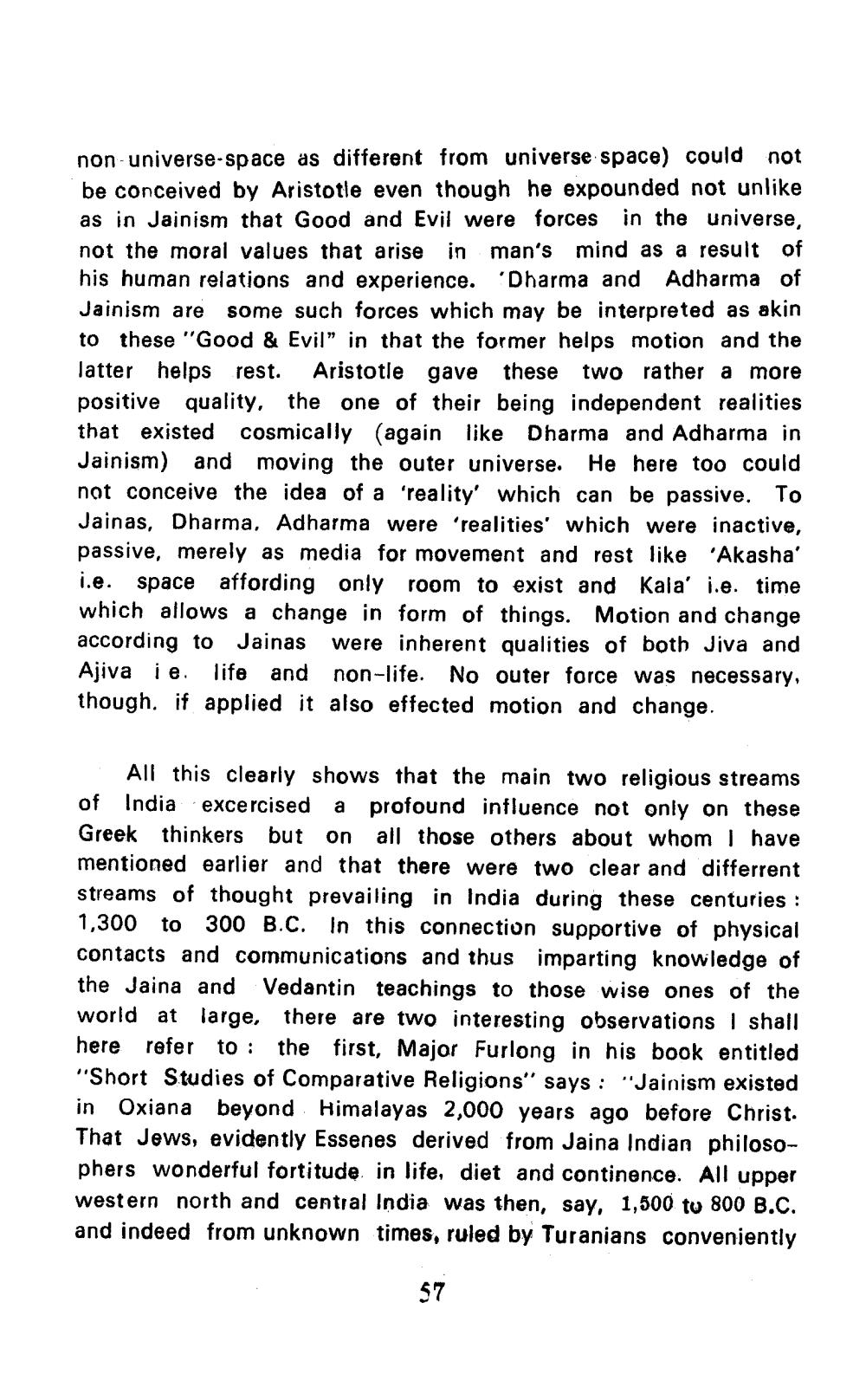________________
non-universe-space as different from universe space) could not be conceived by Aristotle even though he expounded not unlike as in Jainism that Good and Evil were forces in the universe, not the moral values that arise in man's mind as a result of his human relations and experience. 'Dharma and Adharma of Jainism are some such forces which may be interpreted as akin to these "Good & Evil” in that the former helps motion and the latter helps rest. Aristotle gave these two rather a more positive quality, the one of their being independent realities that existed cosmically (again like Dharma and Adharma in Jainism) and moving the outer universe. He here too could not conceive the idea of a 'reality' which can be passive. To Jainas, Dharma, Adharma were 'realities' which were inactive, passive, merely as media for movement and rest like 'Akasha' i.e. space affording only room to exist and Kala' i.e. time which allows a change in form of things. Motion and change according to Jainas were inherent qualities of both Jiva and Ajiva ie. life and non-life. No outer force was necessary, though. if applied it also effected motion and change.
All this clearly shows that the main two religious streams of India excercised a profound influence not only on these Greek thinkers but on all those others about whom I have mentioned earlier and that there were two clear and differrent streams of thought prevailing in India during these centuries : 1,300 to 300 B.C. in this connection supportive of physical contacts and communications and thus imparting knowledge of the Jaina and Vedantin teachings to those wise ones of the world at large, there are two interesting observations | shall here refer to : the first, Major Furlong in his book entitled "Short Studies of Comparative Religions" says : "Jainism existed in Oxiana beyond Himalayas 2,000 years ago before Christ. That Jews, evidently Essenes derived from Jaina Indian philosophers wonderful fortitude in life, diet and continence. All upper western north and central India was then, say, 1,500 tu 800 B.C. and indeed from unknown times, ruled by Turanians conveniently




